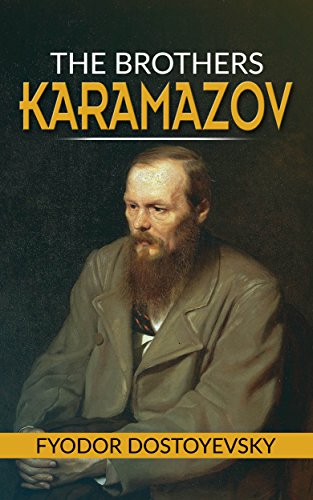Fyodor Dostoevsky’s magnum opus, “The Brothers Karamazov,” stands as a towering achievement in the realm of philosophical literature. Set against the backdrop of 19th-century Russia, this monumental novel delves deep into the intricacies of faith, morality, and free will through the lives of the Karamazov brothers—Dmitri, Ivan, and Alyosha. As readers embark on a journey through the tumultuous landscapes of the human soul, they are confronted with existential questions that resonate across time and space.

Dostoevsky, born on November 11, 1821, in Moscow, Russia, was a literary visionary whose works continue to captivate readers with their profound insights into the human condition. Drawing from his own struggles with faith and morality, Dostoevsky crafted a narrative that transcends mere storytelling to become a profound exploration of the nature of existence itself. Despite facing personal tragedies and political persecution, Dostoevsky remained steadfast in his commitment to exploring the depths of human consciousness and the complexities of moral responsibility. His legacy as one of the greatest novelists of all time endures, with “The Brothers Karamazov” standing as a testament to his genius and enduring relevance.
At the heart of “The Brothers Karamazov” lies a gripping tale of patricide and its repercussions, but it is the philosophical undercurrents that truly propel the novel into the realm of timeless literature. Through the debates and dialogues of the Karamazov brothers, Dostoevsky grapples with existential dilemmas and moral quandaries that continue to perplex and intrigue readers to this day. From Ivan’s atheistic skepticism to Alyosha’s devout faith, each brother embodies a different facet of the human experience, inviting readers to confront their own beliefs and values in the process.
Central to the novel is the exploration of free will and its implications for morality and redemption. As the characters navigate the complexities of guilt, forgiveness, and redemption, Dostoevsky challenges conventional notions of justice and mercy, leaving readers to ponder the eternal struggle between good and evil in the human soul. Through the trials and tribulations of the Karamazov brothers, Dostoevsky ultimately offers a glimmer of hope—a belief in the power of love and compassion to transcend the darkest depths of human depravity.
In conclusion, “The Brothers Karamazov” stands as a timeless masterpiece that continues to captivate and inspire readers with its profound insights into the human condition. Through its richly drawn characters and philosophical musings, Dostoevsky invites us to confront the fundamental questions of existence and to grapple with the complexities of faith, morality, and free will. As we journey through the pages of this monumental novel, we are reminded of the enduring power of literature to illuminate the depths of our souls and to guide us on the path towards greater understanding and compassion.



